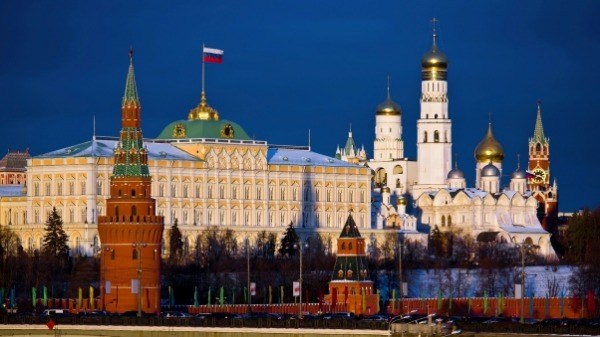Kremlin names three conditions for improving relations with Europe
Russia is “carefully analyzing” French President Emmanuel Macron’s offer to improve dialog with Moscow, Russian Deputy Foreign Minister Alexander Grushko said on the sidelines of the Munich Security Conference, as cited by RBC news agency. The deputy minister remarked that Russia “is appraising the situation on the basis of reality”, and understands that, in order to bring about systemic changes to the status quo, Europe needs to take concrete steps towards cooperation.
According to Grushko, relations can only be improved if two of Europe’s key institutes – NATO and the EU – change their policies. The EU, he said, must demonstrate more specifics in its approach to Russia. He remarked that Brussels is still not moving away from the five principles of relations with Russia that were adopted in 2016 by Federica Mogherini, who at the time was the High Representative for Foreign Affairs and Security Policy. “These principles cannot – by a long shot – be described as a strategy or as implemented policy towards Russia,” he explained.
Secondly, he said that NATO should stop focusing on deterring Russia and trying to involve it in a Cold War-era security system. “The alliance has suspended all the political cooperation projects that really improved the security not only of the Russia-NATO Council member-states, but also of the citizens and societies of these countries,” he said. He recalled the previous cooperation between NATO and Moscow in civil security and countering drug trafficking in Afghanistan.
Grushko also described NATO’s increased military potential on Europe’s eastern flank for protection against Russia as a “pointless waste of funds”. “It’s an absolutely pointless undertaking, when there are no real threats to this region, when all of the security risks are on the southern periphery. And instead of joining efforts in the fight against these shared risks [to the south of Europe], this mini Cold War is continuing,” he remarked.
Thirdly and finally, Grushko urged European countries to show more independence in their approaches to Russia, and not to succumb to the US’s influence, if the US continues to oppose a normalization of dialog with Moscow. “Europeans should reconsider the approaches, which are in many ways imposed by the US,” he said.
In Grushko’s opinion, the discussion during the Munich Security Conference showed that establishing global security without cooperating with Russia is a hopeless undertaking. “More and more people are understanding that there cannot be security without Russia, and that security against Russia doesn’t work, and so ways to cooperate need to be found somehow,” the Russian diplomat resumed.
Recently French President Emmanuel Macron said that there are two ways European countries can interact with Russia. Europe can “act even more severely” towards Russia, adding to the pressure on it. However, in Macron’s opinion, this scenario is not optimal. Instead, Macron said, Europe could expand its strategic dialog with Russia, while retaining its influence and not relinquishing its values. The French President described the latter scenario as more favorable.
